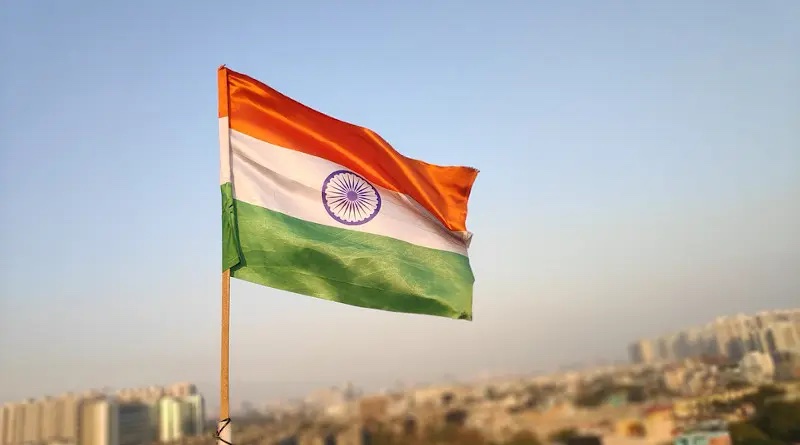Where Does India Stand In International Human Rights Conundrum? – OpEd
By Komal Khan
Human Rights violations in India are an international concern given the reports by international governments and non-governmental institutions that call attention to the wide range of human rights abuses in India. For example, the State Department of the US, in its country report 2021 on Human Rights practices in India notes credible reports of significant issues of human rights in India that include unlawful killings, arbitrary arrest and detentions carried out by the state and its representatives, along with various other forms of tortures and ill-treatment.
This ethnic pluralism in India oblige the Indian constitutional framework to uphold the principles of secularism and formal equality; and theoretically, at least, it did. However, the religious freedom and social securities in India have been subjected to an inexplicit constitutional clause that is “subject to public order”. It legalizes suspension of the minority rights for national security, thus authorizing political abrogation of state secularism in India. With this constitutional crisis in practice which is contrary to the legitimate secular architecture of Indian constitution; the undergoing Hindu political engineering by Right-Wing politics in India is the cause of conflict amid Indian nationalism and human security situation of not only the Indian minorities, but of the intra-Hindu sub-sections as well. Human Rights violations in the Indian Illegally Occupied Jammu and Kashmir, on the Zionists precedents of occupations, are unsurpassable except in case of Gaza. Human rights violations in Kashmir by the India authorities qualify for genocide crimes as per International Humanitarian Law.
Human security in India reflects the ethno–cultural and geostrategic adaptation of Hindutva. The existing political and legal order in India is operating in a mechanism that makes sure the acculturation of the religious minorities in Hindutva-majority normative framework, such Animal preservation Amendment, no- religious conversion ordinance, Uniform Civil Code instead of Muslim Personal Law and many alike as measures of social control against Muslims. This Hindu-specific social order to the extremity includes policies of that declare the minorities stateless in India. This has been done under the Citizen Amendment Act (CAA), and National Population Register (NPR) 2019-2020; under the Pan Indian National Registration of Citizen law (NRC).
These constitutional measures indicate BJP-initiated ethnocentric politics of the Hindutva constitutionalism. However, Article 15 of the Indian Constitution provides for the freedom of religion and the right to profess, practice and propagate religions ad inalienable right of citizens in India. Similarly, Article 14 and 25 to 28 of the Indian constitution legally bound the government of India to treat equally and impartially every religion in India without any discrimination and prohibit meddling in their religious affairs.
The Institute of Peace and Conflict Studies (IPCS) based in India identifies the intensifying communal violence to the identity-occupied shift in Indian politics, notably the political application of the Hindu Nationalism by populist political parties. Similarly, the report in 2020 by the United States Commission on International Religious Freedom keeps India in Tier 2 over the current status of religious freedom abuses in India. As per the report, the previously upheld constitutional rights that had been guaranteed to the religious minorities of India since independence, are in a state of gradual erosion in present India. Similarly, multiple reports of the United Nations Human Rights Watch since 2020 raise concerns over deteriorating human rights state in India.
Previously, the consequences of the politics of divide and rule have been witnessed in the Gujarat massacre that followed the Babri Mosque demolition and was supported by the BJP, the Shiv Sena, and the VHP in 1992 leading to about 2000 deaths; moreover, during the clashes between Hindu Jatts and Muslims in Muzaffarnagar, in the state of Uttar Pradesh (UP) in 2013 that left 62 dead, 93 wounded and 50,000 displaced internally displaced people.
The reason for this is that despite the promises of dignity, human rights, and equality for all done by the legal theory of liberal democracy in India; the fact on the practical front is that the far-Right populist government in rule there has failed to deliver so. India has a history of past marginalization, hence, the resurgence of nationalistic fervor affiliated with religion and race does not guarantee human security, and it rather intensifies human rights violations in such conservative social-cum-political setups. This politics of identity based on above rationale makes nationalism and religion the prevalent forces that have been shaping the modern politics. Modi’s India is the prime case of it. What is in need of being re-stressed is that the genesis of the ideology of ‘Hindu’ actually advocated the Hindu nationalism that is based on geographic affiliation, and not religious, acknowledging ethnic pluralism with substantive equality in relation to the ethnic minorities and majority residing in India.
The writer is working as a Research Officer at the Strategic Vision Institute (SVI), a non-partisan think-tank based out of Islamabad, Pakistan.


Pakistan is facing an existential crisis, which will worsen if difficult and painful steps are not taken immediately. It is time for all institutions to be on the same page, for politicians to build economic consensus and take difficult decisions.The Human Rights situation in Balochistan can be compared to that of an active simmering volcano and the situation is worsening by the day, the issue has not received much international attention as there is little reportage on it. While the Baloch have repeatedly appealed to the US and other Western powers to pressurise Pakistan to stop its brutal repression in the province, they have largely remained silent. The US’s policy in this regard in particular is dictated by their dependence on Pakistan. Balochistan is known as “Pakistan’s land of the disappeared missing.” The author is reminded of the idiom “Those who live in glass houses shouldn’t throw stones” is to remind him not to criticize others for a flaw that you yourself (Pakistan) possess.